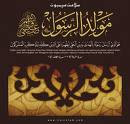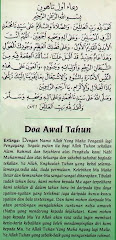



Muharram is the first month of the Islamic calendar. It is one of the four sacred months of the year in which fighting is prohibited. Since the Islamic calendar is lunar, Muharram moves from year to year when compared with the Gregorian calendar.Muharram is so called because it was unlawful to fight during this month; the word is derived from the word ‘haram’ meaning forbidden. It is held to be the most sacred of all the months, excluding Ramadan. Some Muslims fast during these days. The tenth day of Muharram is called Yaumu-l 'Ashurah, meaning, ‘the day of grief’.
Muharram has certain other characteristics special to it, which are specified below.
1)Fasting During the Month
The Noble Prophet, Sall-Allahu alayhi wa sallam, has said: 'The best fasts after the fasts of Ramadan are those of the month of Muharram."
Although the fasts of the month of Muharram are not obligatory, yet one who fasts in these days out of his own will is entitled to a great reward by Allah Almighty. The Hadith cited above signifies that the fasts of the month of Muharram are most rewardable ones among the Nafl or voluntary fasts.
The Hadith does not mean that the award promised for fasts of Muharram can be achieved only by fasting for the whole month. On the contrary, each fast during this month has merit. Therefore, one should avail of this opportunity as much as he can.
2)The Day of 'Ashurah'
Although Muharram is a sanctified month as a whole, yet, the 10th day of Muharram is the most sacred among all its days. The day is named 'Ashurah'. According to the Holy Companion Ibn 'Abbas, Radi-Allahu anhu. The Holy Prophet, Sall-Allahu alayhi wa sallam, when migrated to Madinah, found that the Jews of Madinah used to fast on the 10th day of Muharram. They said that it was the day on which the Holy Prophet Musa (Moses), alayhis salam, and his followers crossed the Red Sea miraculously and the Pharaoh was drowned in its waters. On hearing this from the Jews, the Holy Prophet, Sall-Allahu alayhi wa sallam, said, "We are more closely rotated to Musa, alayhi salam, than you," and directed the Muslims to fast on the day of 'Ashura'. (Abu Dawood)
It is also reported in a number of authentic traditions that in the beginning, fasting on the day of 'Ashura' was obligatory for the Muslims. It was later that the fasts of Ramadan were made obligatory and the fast on the day of 'Ashura' was made optional. Sayyidina 'Aisha, Radi-Allahu anha, has said:
"When the Holy Prophet, Sall-Allahu alayhi wa sallam, came to Madinah, he fasted on the day of 'Ashura' and directed the people to fast. But when the fasts of Ramadan were made obligatory, the obligation of fasting was confined to Ramadan and the obligatory nature of the fast of 'Ashura' was abandoned. Whoever so desires should fast on it and any other who so likes can avoid fasting on it." (Sunan Abu Dawud)
However, the Holy Prophet, Sall-Allahu alayhi wa sallam, used to fast on the day of 'Ashura' even after the fasting in Ramadan was made obligatory. Abdullah ibn Musa, Radi-Allahu anhu, reports that the Holy Prophet, Sall-Allahu alayhi wa sallam, preferred the fast of 'Ashura' on the fasts of other days and preferred the fasts of Ramadhaan on the fast of 'Ashura'. (Bukhari and Muslim)




.jpg)









.jpg)











0 Comments
Leave a Comment